Last week Tim Peake removed the shutter door on ESA’s Biolab and installed a replacement cover making the facility ready for more experiments in next Expeditions. Biolab is a miniature laboratory that supports biological experiments on micro-organisms, cells, tissue cultures, small plants and small invertebrates since 2008.
Tim also completed his sixth weekly Space Headaches questionnaire and sent it down to the researchers who are looking to understand headaches that many astronauts suffer from when in space.
On Monday 1 February Tim did his third session of testing his own skin for the Skin-B experiment. Tim is the fifth in a line of astronauts who are having their Skin checked to chart how it reacts to spaceflight. More info in a future blog post.
Tuesday morning was spent working in the Japanese Kibo laboratory storing items. In the afternoon Tim switched on the miniature computer Astro Pi “Ed” and started running student-code. In the afternoon Tim talked to UK school children for Cosmic Classroom, did his 90 minutes of exercise and held his weekly medical conference with the crew surgeon.
Wednesday Tim worked some more in Kibo on the airlock and transferred more cargo on the Cygnus supply spacecraft. The afternoon was spent exercising and helping his Russian colleagues on their spacewalk. The next day Tim gave his inputs into living on the Space Station to help designers on future space missions. Aside from the daily exercise Tim spent the afternoon tidying up spacewalk items and worked on the Station’s water supply as well as organising the Columbus laboratory.
Tim spent most of Friday morning in the Kibo laboratory working on the airlock and also did another session for NASA’s Fine motor experiment. The afternoon saw Tim working on the combustion experiment facility to prepare it for more experiments.
Saturday as usual is spent cleaning the Space Station, but Tim had a ham radio session in the morning and will collect a stool sample for a Japanese experiment Multi-omics that is looking at how space affects ‘good’ bacteria in an astronauts body. The sample will be frozen in the space freezer MELFI at –80°C. After this less glamorous activity in the name of science Tim and his colleagues had a treat, they were able to watch the Six-Nations Rugby match England-Scotland.
Highlights for this week include eye exams, ultrasounds investigating Tim’s cardio-vascular system, working on the radiation monitors and bacterial samples.

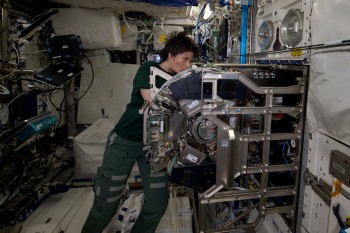
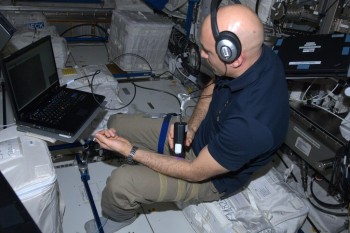
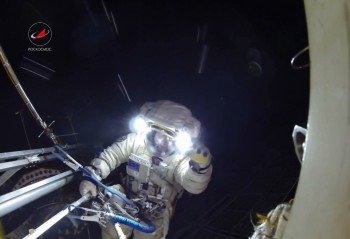
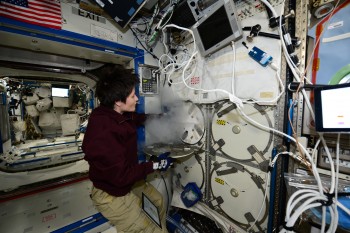
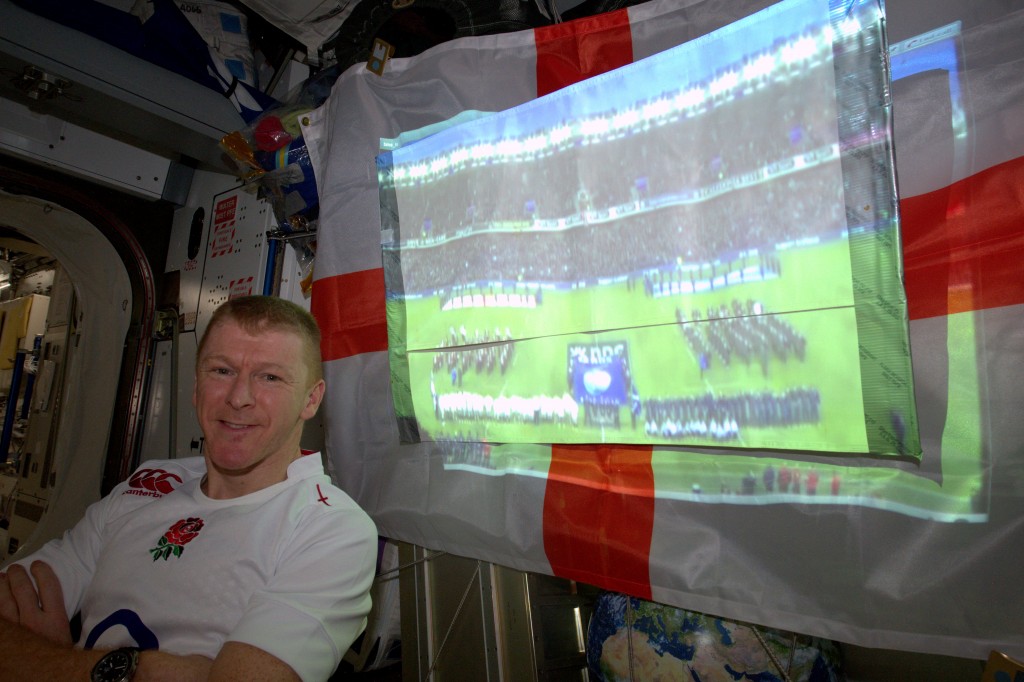
Discussion: no comments